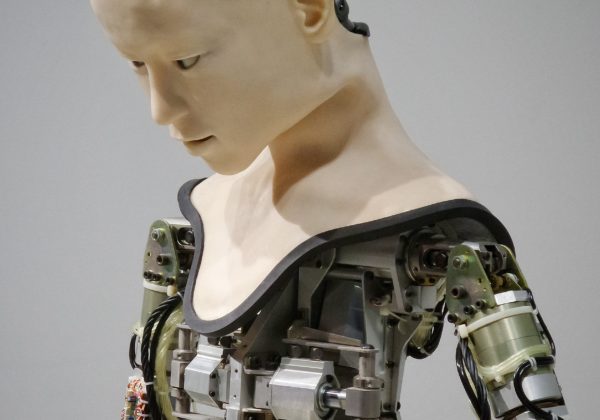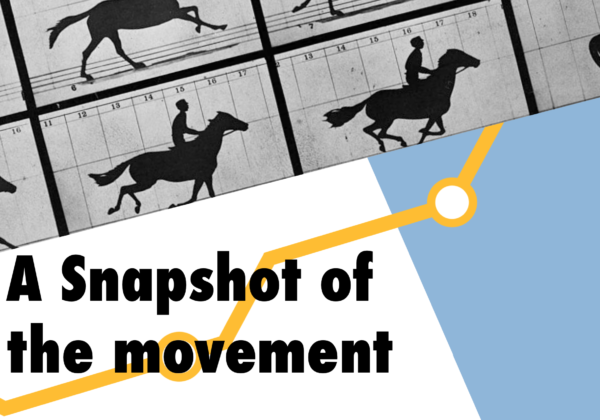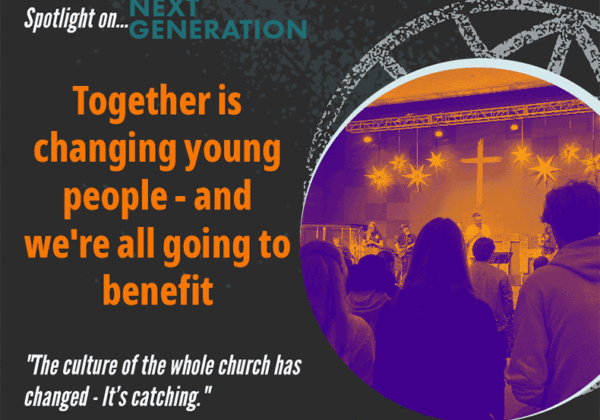
The AI Leviathan: Paradigmatic Technological Change & Ethics
Unknown to the majority of the world’s population, a Leviathan, the like of which we have never imagined, lies hidden beneath the surface of the murky waters of exponential technology. It’s called AI – Artificial Intelligence.
Our most recent brush with this monster will have occurred in the last few weeks as we heard the media tell us of the recent release of GPT-4 a form of Artificial Intelligence. By now, the majority of us will have forgotten what it is! This new technology marks a significant milestone in the field of artificial intelligence, particularly in natural language processing. It succeeds it predecessor in that it is not just a master of language but also is able to create images by using its power to decode and then synthesise reality. In the future, what sounds and looks to be real may well be false. GPT-4 is a master at synthetic relationships and images!
I imagine your average punter will be oblivious to the unparalleled historic change that is taking place, all engineered by the profit and power-crazed elite of Silicon Valley. AI’s commercial value is unprecedented, and the promise of a huge pot of gold is fuelling a new AI ‘arms race’ between Microsoft and Google. Whilst technological progress heralds many benefits, we know from recent experience it also wreaks psychological, sociological, and economic havoc. Our most recent encounter with the tentacles of the AI monster have been via social media. Whilst we can applaud its ability to connect us together in new ways, it’s enabling us to join like-minded communities and giving everyone a voice, it has a darker side to its seismic power and influence. Mental Health is adversely affected, addiction is prevalent, social polarization continues to accelerate and there are issues around censorship vs free speech. It’s coercive power shapes politics and increasingly determines election results, children’s identity is being shaped by it and journalism and the media has changed beyond recognition – I could go on!
Many are troubled by the potential of the serpent from the deep. There are a growing number of technologists, ethicists and sociologists calling for a halt in the AI research programs. Elon Musk recently signed an open letter calling for a six-month halt in giant AI experiments. One of AI’s leading celebrities Eliezer Yudkowsky has called for a complete halt to all research. Tristan Harris, founder of The Centre for Human Technology argues that we may have passed the turning point with AI. Tristan is one of the champions of a foundational approach to designing new technology. He’s advocating for an ‘ethics and values’ first approach to provide the necessary foundation for the design and development of new tech. No such conversation has taken place among those developing the paradigmatic technological change that AI will bring. This should concern us greatly.
How are our values and ethics shaped?
The development of this technology comes at a point in human history that is described by a growing number of academics as a global metacrisis. Without a radical course correction many prophesy a dystopian future, some even go as far as to say an end of civilization as we have known it. The problems began before the world of tech found its feet. Over 300 years ago saw the dawning of the Age of Enlightenment’, sometimes also called the ‘Age of Reason’. This was an intellectual movement based in Europe in the late 17th century that prized the powers of scientific discovery, reason and logic to improve the human condition. This was the era that shunned the transcendent for the material. Faith was extricated from public life; religion was to be tolerated but only as a private personal pursuit. Revolutionary scientific discovery and the accompanying ideology that declared the supremacy of human reason and logic, resulted in the following two centuries hosting unprecedented and remarkable technological innovation and change.
A couple of hundred years on, the ideology has survived more or less intact. Our post-modern era remains rooted in science, reason and logic and rejects the notion of anything ‘unseen’, ‘other’ or ‘beyond’. The Divine is obsolete. Individual and collective prosperity, progress and welfare are still considered to be the result of human endeavour. The meta narrative rooted in the Divine that once guided humanity gave way to the guiding star of individualism.
The multiple crises we face today, and their subsequent fallouts betray the absence of a meta narrative that is connected to the transcendent and a life that is calibrated in ways that are beyond individual merit and material progress. Our technocratic socio-economic system is detached from anything deeper than its own goal. We exist in a hyper-individualistic consumer culture that is blind to anything other than growth and always elects for quantity over quality. Its mantra is more, bigger and better. At the core it is narcissistic and addicted to consumption. Personal gain and private profit in all their shapes and forms trump any talk of ethics and values. Such conversations would threaten to derail the capitalist machine.
Currently humanity is being eclipsed by the exponential pace of technological progress. We are simply not able to keep pace but are being outpaced cognitively, morally, ethically, and spiritually.
Many peoples’ hopes for a better future for humanity have been pinned on humanism. Humanism led us to believe that we all have the responsibility and capability to lead ethical, moral lives and enable greater personal fulfilment and common good. However, as we survey the global cultural landscape, all the evidence suggests otherwise. The void created by jettisoning a story that transcended physicalism and that gave us a shared belief in why and for what purpose we exist, has resulted in cultural decay, even collapse. All of us are now engaged in individualism’s free-for-all. Cognisant of this collapse and without a shared common source for understanding and shaping our ethics and values, many of those sounding the alarm about the dystopian future AI promises are struggling to work out how we ensure that technology doesn’t continue its current trajectory of de-humanisation. The primary question we should be asking is, how do we ensure that Artificial intelligence values people above profit?
The threat that AI poses to humanity is not to be underestimated. The Centre for Humane Technology, an organisation whose mission is to align technology with humanity’s best interests and their wellbeing reports four main concerns of this new technology.
1/ Half of AI researchers believe there’s a 10% or greater chance that humans will go extinct from their inability to control AI. When we invent a new technology, we uncover a new class of responsibility. If that technology confers power, it will start a race – and if we don’t coordinate, the race will end in tragedy.
2/ Humanity’s ‘First Contact’ moment with AI was social media – and humanity lost out. We still haven’t fixed the misalignment caused by broken business models that encourage maximum engagement. Large language models (LLM) are humanity’s ‘Second Contact’ moment, and we’re poised to make the same mistakes.
3/ Guardrails you may assume exist actually don’t. AI companies are quickly deploying their work to the public instead of testing it safely over time. AI chatbots have been added to platforms children use, like Snapchat. Safety researchers are in short supply and most of the research that’s happening is driven by for-profit interests instead of academia.
4/ The media hasn’t been covering AI advances in a way that allows you to truly see what’s at stake. The Centre for Humane Technology want to help the media better understand these issues. Cheating on your homework with AI or stealing copyrighted art for AI-generated images are just small examples of the systemic challenges that are ahead. Corporations are caught in an ‘arms race’ to deploy their new technologies and get market dominance as fast as possible. In turn, the narratives they present are shaped to be more about innovation and less about potential threats. We should put the onus on the makers of AI – rather than on citizens – to prove its danger.
You can find out more about the AI Dilemma by listening to the podcast in the link below.
https://www.humanetech.com/podcast/the-ai-dilemma
It is a sobering moment for me and you, but more importantly for us collectively – for humanity as a whole. Leviathan’s temptation is that you ‘turn a deaf ear’, move on and ignore reality. Jesus said, “He who has ears let him hear”.
Related posts
 MOVEMENT – Youth Prayer for the Black Country - We’re back! After successfully gathering nearly 200 young people for the Youth Prayer Gathering the last two gatherings, we’re keen to come together again. This is MOVEMENT, named by young people at Together Festival – a moment to worship, pray and gather the young people of our region. Facilitated by Love Black Country and The […]
MOVEMENT – Youth Prayer for the Black Country - We’re back! After successfully gathering nearly 200 young people for the Youth Prayer Gathering the last two gatherings, we’re keen to come together again. This is MOVEMENT, named by young people at Together Festival – a moment to worship, pray and gather the young people of our region. Facilitated by Love Black Country and The […] Feasts & Festivals – What’s the Point? - Together Narrative As 2023 draws to a close and the New Year almost upon us, I reflect on the past 12 months and focus on certain highlights that will remain with me for many years. One of these, for a whole variety of reasons, is undoubtedly the Together 23 Festival at Himley on July 8. […]
Feasts & Festivals – What’s the Point? - Together Narrative As 2023 draws to a close and the New Year almost upon us, I reflect on the past 12 months and focus on certain highlights that will remain with me for many years. One of these, for a whole variety of reasons, is undoubtedly the Together 23 Festival at Himley on July 8. […] Snapshot – A review of a year of movement. - Snapshot 2023 – Love Black Country As we share this annual snapshot, we want to take a moment to express our gratitude to you all. Love Black Country has been part of this regional Church community for over 30 years, and it’s humbling to see the progress we’ve made together. This movement isn’t just about […]
Snapshot – A review of a year of movement. - Snapshot 2023 – Love Black Country As we share this annual snapshot, we want to take a moment to express our gratitude to you all. Love Black Country has been part of this regional Church community for over 30 years, and it’s humbling to see the progress we’ve made together. This movement isn’t just about […] MOVEMENT – How a regional youth gathering changed a church - Last week 200 young people gathered TOGETHER from across the Black Country to worship & pray together, this regional evening was a roaring success with young people pouring themselves out for Jesus and coming forward for prayer. The sense of the spirit was tangible. We’re sure that investing in young people will feed, grow and […]
MOVEMENT – How a regional youth gathering changed a church - Last week 200 young people gathered TOGETHER from across the Black Country to worship & pray together, this regional evening was a roaring success with young people pouring themselves out for Jesus and coming forward for prayer. The sense of the spirit was tangible. We’re sure that investing in young people will feed, grow and […] MOVEMENT – Youth Prayer for the Black Country - We’re back! After successfully gathering nearly 200 young people for the Youth Prayer Gathering in April, we’re keen to come together again. This time with a new name, as selected by young people at Together Festival MOVEMENT This is MOVEMENT, named by young people at Together Festival – a moment to worship, pray and gather […]
MOVEMENT – Youth Prayer for the Black Country - We’re back! After successfully gathering nearly 200 young people for the Youth Prayer Gathering in April, we’re keen to come together again. This time with a new name, as selected by young people at Together Festival MOVEMENT This is MOVEMENT, named by young people at Together Festival – a moment to worship, pray and gather […]